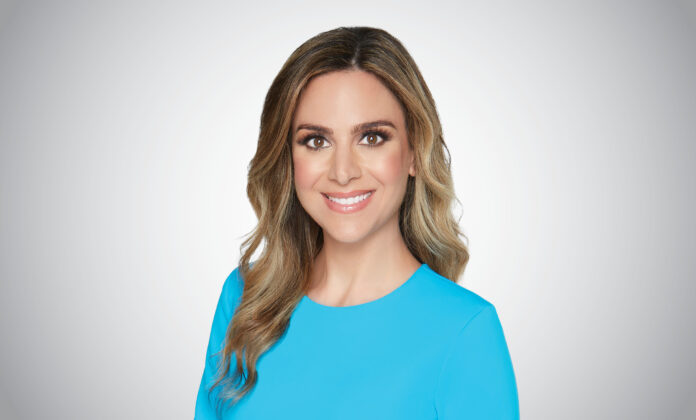By: Carrie Sheffield
Law school grad Jackie DeAngelis is a financial and journalism dynamo who’s fluent in three languages. She joined the FOX Business Network (FBN) as a financial correspondent in 2019 and currently serves as co-host of The Big Money Show (weekdays, 1 PM/ET) alongside Taylor Riggs and Brian Brenberg.
Prior to joining FBN, Jackie spent 13 years at CNBC where she was the network’s chief energy correspondent as well as the anchor of online commodities program, Futures Now. Jackie was stationed in the Middle East where she interviewed business titans like OPEC Secretary General Abdalla El-Badri and Saudi Arabian Finance Minister Ibrahi Al-Assaf for CNBC International. Enjoy insights from this multi-faceted, FBN star in our Smart Women, Smart Money interview below!
How did you get into working in finance and later the news industry? What materials do you read from financial companies to help you prepare for your shows? Who are your top go-to financial experts?
I started in finance by interning for a hedge fund in college, Oaktree Capital, and I stayed with that firm after graduation. Financial news was a “happy accident” for me, CNBC found my resume after I had left Oaktree and started at Rutgers Law. They called me to see if I’d be willing to work as a part time writer for Jim Cramer when he was launching his show. I jumped at the opportunity and ended up loving television, reporting, and explaining complicated subjects to viewers. To prepare from shows I read everything I can get my hands on, just like I did at Oaktree. Quarterly and annual reports, letters to shareholders, analyst notes, and news articles. Understanding a company can be like a mystery, you find little clues in everything you read. My go-to analysts are some of the same ones that used to cover me on Wall Street, these are relationships I’ve cultivated over the course of a twenty-year career, and I’m grateful for them.
Wall Street, VCs and the business world are generally male-dominated. What advice do you have for women entering into these fields?
Women working on Wall Street are still a minority, it’s a very male dominated industry. My best advice would be work hard and know your stuff. They will test you and challenge you at every turn, but showing you’re as good, if not better, is very powerful; I think that actually applies to every industry.
Studies show women have less confidence than men in making financial choices. What personal finance advice do you have for women to make them feel more confident in making financial decisions?
Investing is a very personal experience, a lot of us learn our financial habits at home for better or worse. My first suggestion to women, especially those starting out is: save, save, save – you need money to start investing. Then I recommend a diverse approach, it may be a little risk averse but it’s a starting point: 1/3 cash, 1/3 stocks, 1/3 real estate.
Mandarin and Farsi are both difficult languages and you’re fluent in both. How long did it take to learn both and what was the process like?
I grew up speaking Farsi at home, so that was easy because kids are like sponges with languages when they’re that young. Mandarin was a little harder, I studied it in high school, I even lived in Beijing my junior year when I was 16. Then I continued my studies in Asian History and Mandarin as an undergraduate at Cornell University.
What advice would you give your younger self?
I wouldn’t change a thing about my career trajectory, I love what I do, and that’s such an important key to success. Someone older and wiser actually gave me that advice when I was young, so I share it with others because I took the advice and it helped. The backstory is, when I worked on Wall Street, I had one of those jobs everyone wanted; the only issue was I didn’t love what I was doing. I had to decide if I wanted to stick it out or try something else. But at the time it felt like a huge gamble. Still, that’s when I decided to take a break and go to law school. It was hard to make that decision–you never feel good about giving something up that others covet, but for me it ended up making all the difference. I fell into television, and it was so clear to me that media was where I was meant to be, and it was a field I dove into with energy and passion I didn’t have at my hedge fund job. I was paid a lot less money, but I didn’t let that deter me. I knew if I loved what I did and gave it my all, everything would work out.










